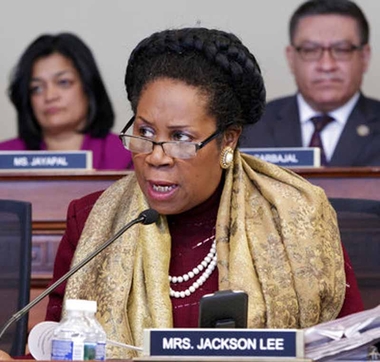Wheels spinning as GOP looks for traction on health bill

Washington (AP) — Pulling in different directions, Republicans are striving to get traction for a health care overhaul in danger of being dragged down by intra-party differences.
Some GOP governors weighed in Thursday evening in a letter to congressional leaders saying the House bill gives them almost no new flexibility and lacks sufficient resources to protect the vulnerable. It landed as Republican moderates and conservatives in the House remained split, and senators expressed reservations. Democrats are united in fierce opposition.
President Donald Trump, whose administration initially embraced the House health care bill, has lately called it "very preliminary," adding that "we will take care of our people or I'm not signing it."
On Friday morning, Health and Human Services Secretary Tom Price is scheduled to meet with the restive House Republican caucus and Trump will host a group of conservative House Republicans for Oval Office talks.
Although the House bill has cleared three committees, some lawmakers can visualize scenarios where things come apart. Rep. Bill Flores, R-Texas, said it's important to get the legislation passed before Congress leaves for a two-week spring recess next month.
"That's never healthy to let something sit out there too long because pretty soon you have a carcass left," he said.
The House bill — called the American Health Care Act — would repeal major elements of former President Barack Obama's law, create a new, leaner system of tax credits for health insurance, and cap future federal spending on Medicaid for low-income people. It would also reverse tax increases on wealth Americans used to finance Obama's Affordable Care Act.
Critics say it would make health insurance more expensive for individuals, especially older adults and those with modest incomes. An analysis by the nonpartisan Congressional Budget Office found 24 million people would lose their health insurance over a decade though the bill would also reduce the deficit.
In the Senate, meanwhile, Susan Collins, R-Maine, told the Portland Press Herald, "This is not a bill I could support in its current form." She joins Kentucky's Rand Paul and Utah's Mike Lee in opposing the legislation, while other Republicans, including Tom Cotton of Arkansas and Ted Cruz of Texas, have expressed deep misgivings. Collins' opposition leaves the bill short of the support it needs in the Senate unless it changes, since GOP leaders can only lose two votes.
In another warning signal, four GOP governors wrote congressional leaders Thursday saying the bill's approach to Medicaid would not work for states. Medicaid covers more than 70 million people, and its future is expected to be a central issue in the Senate.
"It provides almost no new flexibility for states, does not ensure the resources necessary to make sure no one is left out, and shifts significant new costs to states," wrote Govs. John Kasich of Ohio, Rick Snyder of Michigan, Brian Sandoval of Nevada, and Asa Hutchinson of Arkansas.
Saying they represent most GOP governors, the four submitted a nine-page proposal that gives states more options to overhaul Medicaid and modifies the shift to federal spending limits envisioned by the House. The governors said they support the goal of repealing "Obamacare" but want to avoid collateral damage.
Despite open turmoil, House Speaker Paul Ryan tried to strike an optimistic tone as he addressed reporters Thursday for his weekly press briefing.
"We feel like we're making great strides and great progress on getting a bill that can pass," Ryan said. A White House official said the plan is for a House floor vote next Thursday — the seven-year anniversary of the Obama law.
But Ryan did not commit to a timetable for passage, and he's acknowledged that the bill needs changes to pass. Only last week, Ryan was pledging action sometime next week by the House Rules Committee — the precursor to a floor vote — and confidently predicting the bill would have the votes to pass.
Instead, Ryan spent part of his news conference disputing suggestions that he and Trump are at odds over the health bill, rumblings that originate with Ryan's very reluctant support for Trump during the presidential campaign.
"There is no intrigue, palace intrigue, divisions between the principals ... there really is no schism whatsoever," Ryan insisted. "I'm excited at the fact that we have a president who likes closing deals."
But some conservatives, having ousted the last House speaker, were beginning to grumble openly about Ryan's leadership.
By many accounts Trump has been closely involved in negotiations on the health bill, including calling Budget Committee members ahead of Thursday's vote. He is seen as focused on delivering his "repeal and replace" promise but flexible on the fine print.
Failing to pass a bill while his party controls both the House and Senate would be a devastating blow to his party and the premise of his presidency — that he was a dealmaker the country needed.
By Ricardo Alonso-Zaldivar and Alan Fram, Associated Press. Copyright 2017 Associated Press. All rights reserved.
The Gayly – March 17, 2017 @ 7:35 a.m.





